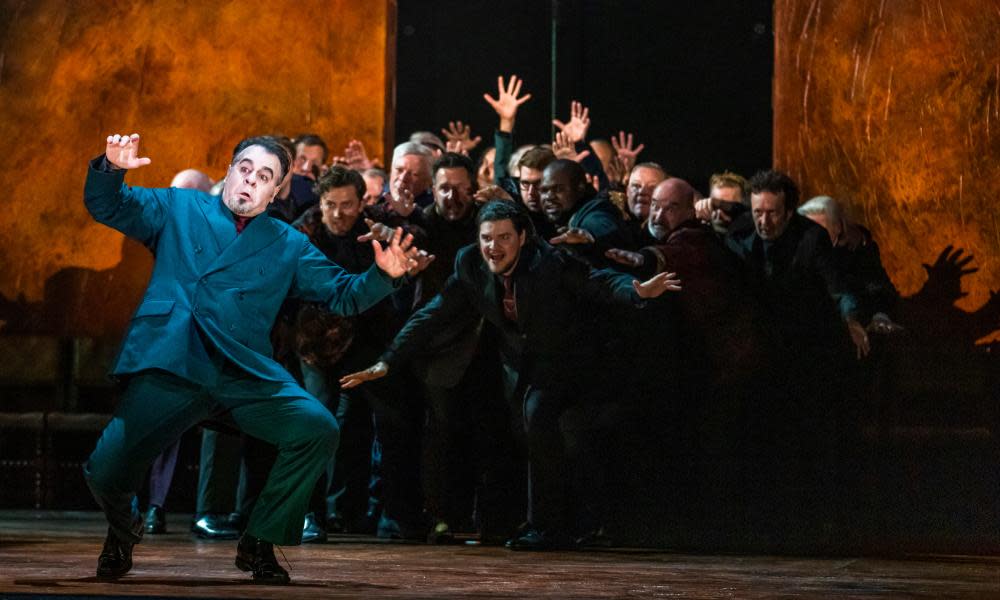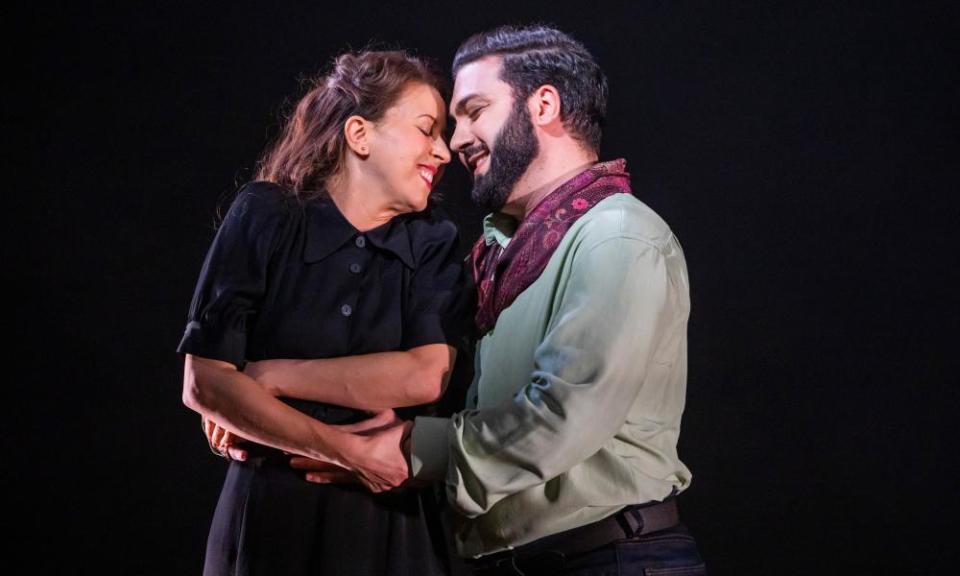Rigoletto review – Oropesa is a matchless Gilda in powerful new take on Verdi’s tragedy

With full audiences returning to Covent Garden for the first time since March 2020, the Royal Opera opens its season with a new Rigoletto, conducted by Antonio Pappano and directed by Oliver Mears, his first staging for the company since his appointment as director of opera in 2017. It’s a powerful piece of theatre, strong on Shakespearean resonances and irony: we’re reminded more than once that Rigoletto is the closest we get to the King Lear that Verdi always said he wanted to write but never did.
Mears’s Mantua is a place of sandstone walls and louring grey skies, where opulence and squalor exist side by side. Ilona Karas’s costumes, though non-specific as to period, suggest the 1980s, and the ducal court, got up in New Romantic velvet, leather and braids, contrasts with city low life in denim and grunge. Liparit Avetisyan’s handsome, vicious Duke collects art as well as women, at one point unveiling Titian’s Venus of Urbino for his guests, while a tattered print of a Madonna is the sole decoration in Gilda’s (Lisette Oropesa) austere bedroom.

This is a society tacitly united by misogyny and violence, towards which Carlos Álvarez’s Rigoletto is at once dangerously complicit and supremely mistrustful. Women are literally lined up for the Duke’s pleasure at his party, while the men at his court form a male-bonded unit, moving in aggressive, stylised unison. Ramona Zaharia’s Maddalena, treated abusively by Brindley Sherratt’s Sparafucile, can only face a client when drunk. Occasionally, Mears misjudges the tone. In a gesture towards Shakespeare’s blinding of Gloucester, the Duke exultantly gouges out the eyes of Eric Greene’s Monterone, which is totally at odds with the score. And the simulated sex between the Duke and Maddalena distracts us from the more important scene between Rigoletto and Sparafucile going on below.
It all sounds terrific, though. Álvarez’s voice may have lost some of its lustre of late, but his interpretation, by turns tender, obsessive and strikingly bitter, is utterly compelling. Oropesa makes a matchless Gilda, singing with an extraordinary beauty of tone and understated depth of feeling: this really is one of the truly great performances. Though occasionally ill at ease with Mears’s view of the Duke as sadist rather than immoralist, Avetisyan brings real seductive poetry to his music in ways that are beguiling. Pappano, meanwhile, lets the score unfold with measured intensity and sensual, yet baleful, beauty.
• Rigoletto is at the Royal Opera House, London, in rep until 12 March.

 Yahoo News
Yahoo News 
